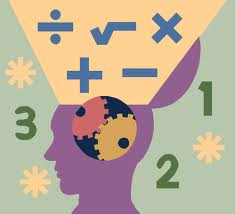 When we educate students, there is always a very careful balance that must be respected. On the one hand, you want to make sure that students are able to learn as much as is reasonably possible. In other words, you want them to have the opportunity to learn as much as they can without getting burnt out, disinterested, overwhelmed, and so on. This means that you try to fit as much information into the curriculum as you think they can handle, but you stop short of what would just be overload. On the other hand, you don't want to be too careful about overloading students, because you might end up on the other end of that delicate balance. If you are overly worried about overtaxing students, you could end up with a situation where they are understimulated and just wasting time in the classroom.
When we educate students, there is always a very careful balance that must be respected. On the one hand, you want to make sure that students are able to learn as much as is reasonably possible. In other words, you want them to have the opportunity to learn as much as they can without getting burnt out, disinterested, overwhelmed, and so on. This means that you try to fit as much information into the curriculum as you think they can handle, but you stop short of what would just be overload. On the other hand, you don't want to be too careful about overloading students, because you might end up on the other end of that delicate balance. If you are overly worried about overtaxing students, you could end up with a situation where they are understimulated and just wasting time in the classroom.So what is the optimal balance that teachers should strive for when they teach students? That question will have different answers depending on the subject that is being taught, so let's narrow the field of inquiry a little bit. What is the right balance for teaching math to high school students, and how do we know if the classes are too easy or too hard? How advanced should high school math get?
Math is an easier place to start when trying to answer this question because math is so much more, well, quantifiable than other subjects. While it can be difficult to determine whether or not a student is really and truly familiar with a certain area of history, and should therefore progress to the next most difficult level, when it comes to math, one need simply present the student with a series of problems in that area of mathematics. If the student is able to answer correctly, then he knows the material. It is a pretty open-and-shut situation, which makes it easy to decide if a student needs to be further challenged, or needs to spend more time on the current topic.
Download Links Exercises Matematika National Exam 2011 for Senior High School (SMA/Madrasah Aliyah)
Download Exercises Matematika For IPA Program
Download Exercises Matematika For IPS Program
Download Exercises Matematika For Languages Program
Download Exercises Matematika For Religious Program
(Notes : All Exercises total 6 package for each program and completed with the very good solutions)
Probably the best way to make sure that a class in on track with what it is learning is to establish a baseline percentage for a class that is keeping up with the material, and one that is failing to keep up, and one that is having too easy a time with it. For example, if the class as a whole is getting at least 70% of the questions right that are asked of them, the teacher may decide that this means they know the material. Of course, it will require actually involvement from teachers, not to mention a little bit of trial and error, to figure out what those numbers actually area, but once some range is settled on, it seems that this might be a good way to make sure that students are able to learn the most that they can without being overwhelmed. That way, they can benefit as much as possible from their time in the classroom, and wasted effort can be minimized both on the teacher side and the student side.
















